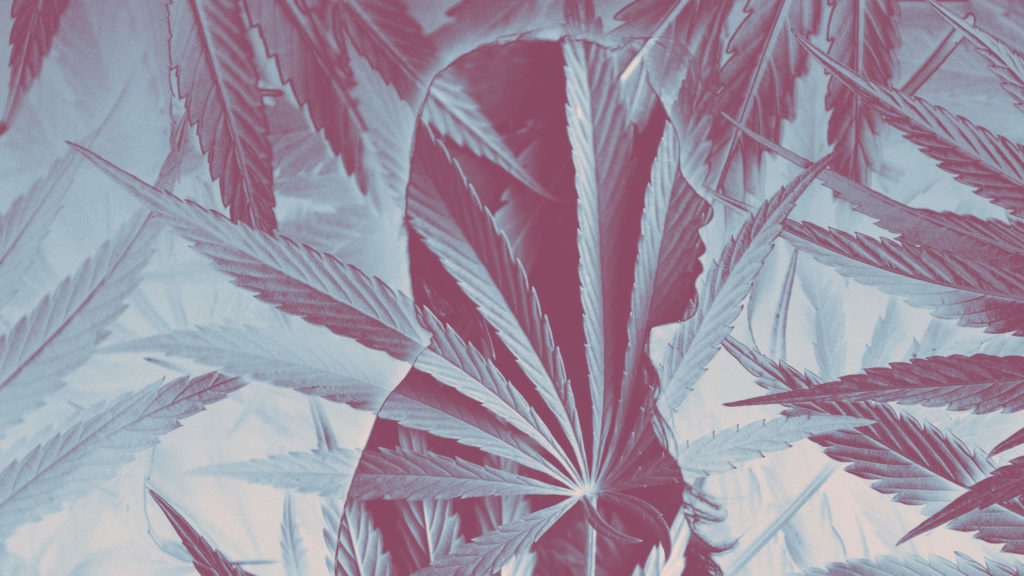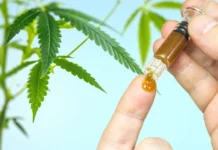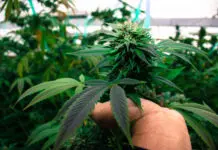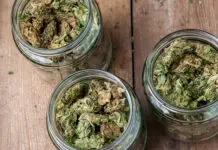1. Too much cannabis causes White-out or a blood-sugar drop
It is a familiar fact that Cannabis use has an effect on blood sugar levels. For those inexperienced, this can be quite dramatic and result in weakness, sickness or sometimes even temporary unconsciousness. This is called “white-out”, or “green-out” in the USA, because of the dramatic paleness of those who have it.
If you feel these symptoms right after consuming cannabis, a sugary drink or a snack is the best and most effective remedy. A potential loss of consciousness typically lasts several seconds, and unless there is an injury, the individual should be fine.
You should help a person with symptoms into a sitting position and provide them with a sugary drink or snack. They must remain seated until shakiness or dizziness stops. Some real food after an hour also helps a lot.

2. Shakiness or tremors
While medicinal cannabis is a great treatment for tremor illnesses like multiple sclerosis and Parkinson’s, for some consumers cannabis actually causes tremors. No formal studies looked into this phenomenon, but people have reported shaking and tremors after consumption. This usually lasts between a few seconds and half an hour.
Potential explanations are the stimulating effect of THC on the central nervous system, or because of an interaction with the dopamine signaling system.
Similarly, people who are dependent on cannabis tend to experience withdrawal symptoms when they try to break the habit. They also feel irritability, nausea and sleeplessness, aside from tremors of hands and feet.
Although these withdrawal symptoms are less severe than with heroin or even alcohol, it is still possible to become dependent on cannabis. Try taking regular tolerance breaks to prevent it.

3. Cotton-mouth
Dry mouth and throat after the use of cannabis use are perhaps the most common on the list. It often does not even take much of it to experience this symptom. During heavy sessions, it can increase until it becomes quite unpleasant when even drinking water makes almost no difference.
Cannabis causes the users to have cotton-mouth because of the presence of cannabinoid receptors 1 and 2 in the submandibular glands. These produce between 60 and 67% of all saliva. THC binds to the glandular receptors and therefore blocks the saliva-inducing compounds like norepinephrine and methacholine, and a decrease in saliva secretion occurs.
Remaining hydrated while consuming will ease the potential symptoms to some extent. For complete relief, try a demulcent for oral use. Numerous products are commercially available that combat the problem of a dry mouth.

4. Paranoia
Paranoia and anxiety are very common side-effects of cannabis intoxication and most experience it, especially newcomers. While they do decrease as your tolerance increases, these symptoms become chronic for some people and therefore increasingly problematic.
Research suggests that if a person is generally anxious, depressed or of low self-esteem, they have more chance to experience paranoia after the consumption. THC plays a part in heightening these emotions as well. In one study on 121 participants between 21 50 years of age, third was administered with placebo and two-thirds with THC. Around 30% of the placebo group and some 50% of the THC group experienced paranoia. The same study also found that paranoia reduced as THC left the bloodstream.
If you experience paranoia after using cannabis, leave time before the next time you use it. In addition, lower the dose to comfortable limits. Your surroundings should also feel comfortable and stress-free.

5. Psychosis
Psychosis can mean anything from a mild disturbance to everyday behavior and thought pattern, to extreme sensory and behavioral dysfunction. Generally, it is a loss of contact with reality.
Because of these misunderstandings and inconsistencies on how to use the term, much confusion exists when it comes to cannabis-induced psychosis. Some studies say it does not exist while others are sure it does. There are also those that suggest cannabis does not cause psychosis, but triggers underlying psychotic conditions in individuals, like schizophrenia.
Whatever the correct name for this phenomenon may be, a set of similar symptoms seems to affect people after prolonged and heavy dosage and use of cannabis. Like paranoia, symptoms include extreme social anxiety, panic attacks, and delusions. One of the most famous symptoms is the feeling everyone “sees” the discomfort in a social setting that the person experiences.
Symptoms like this reduce in severity and disappear after weeks or months following the cessation of cannabis use. With some individuals, these may be a prelude to a more persistent or recurrent psychological difficulty to come.













